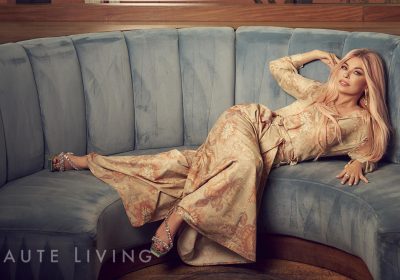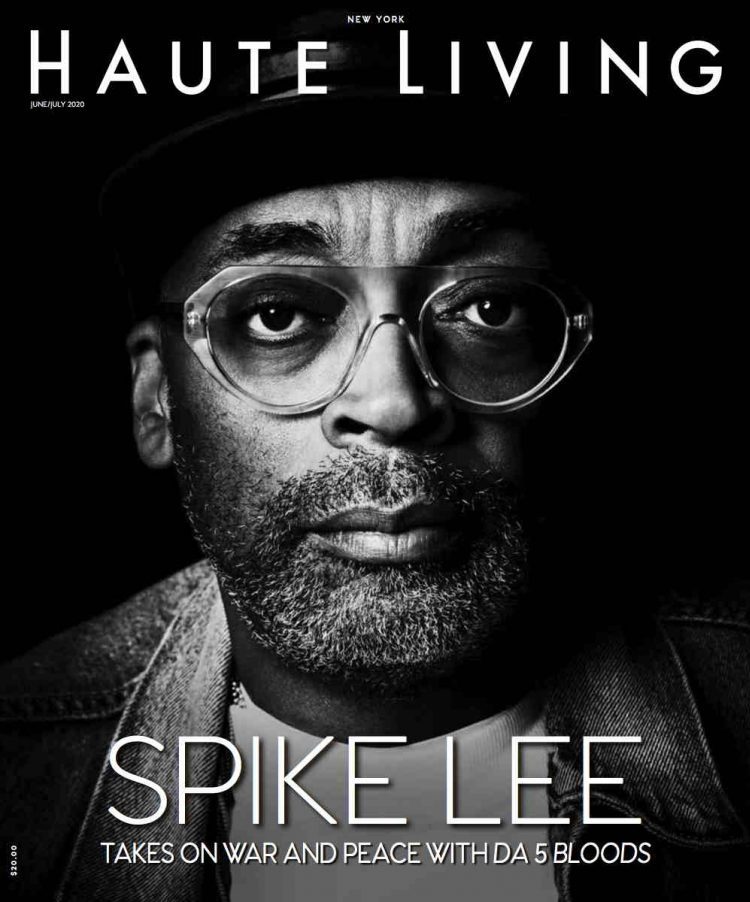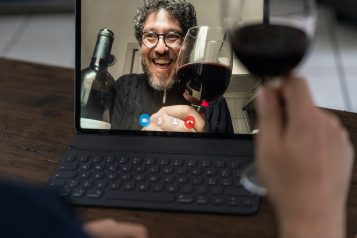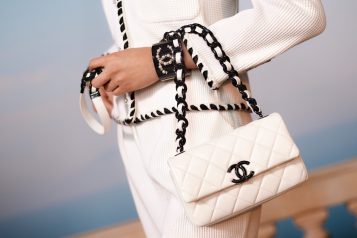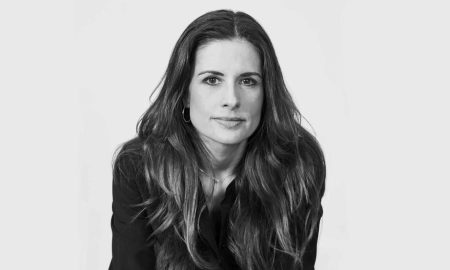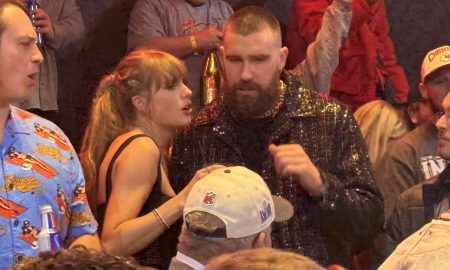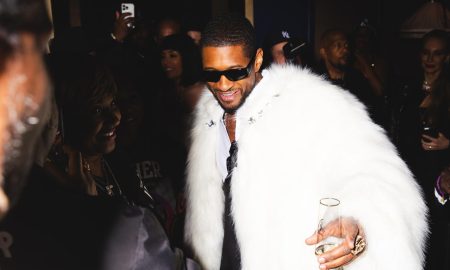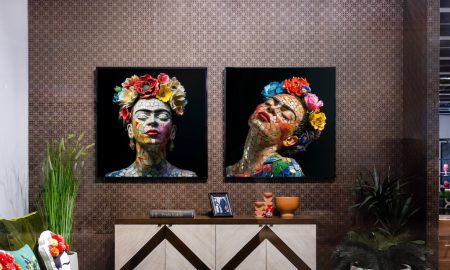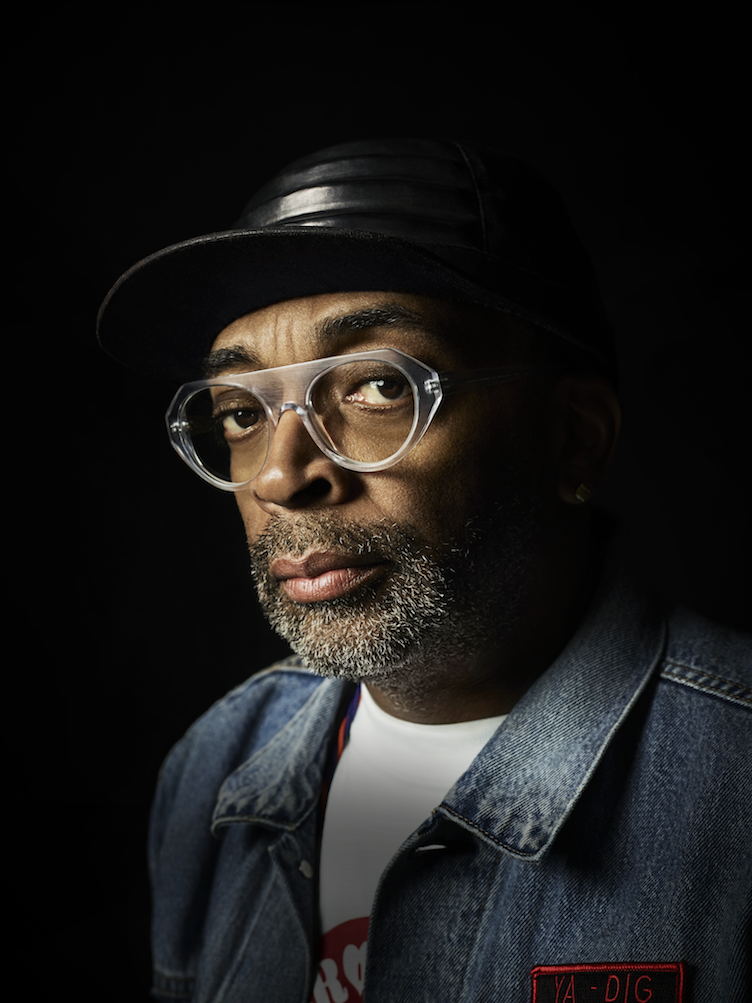
Fifty-two days and counting in lockdown would be enough to make the sanest among us crazy, but not Spike Lee. The infamously outspoken, high-energy filmmaker has found unexpected inner peace during the COVID-19 quarantine.
“This is the first time in at least two decades where I had to sit my black ass down and be still, because I’m always on the go. [When you’re shooting back-to-back projects for twenty years], your mind is always racing. This is the first time my mind isn’t racing in a long, long time,” the Academy Award-winner admits, adding, “For me, it would be criminal not to use this time to think, to slow down, to spend quality time with my wife and kids. I’ve been doing the same thing for the last 20 years; I wouldn’t have slowed down. It really makes you think: It took a pandemic to make this happen.”
Lee is holed up and hunkered down in New York City — the hardest-hit region in the world — with his family, simultaneously insulated from yet hyper-aware of the sickness that is ravaging the country outside his doorstep. The Lees are wisely practicing social distancing to the extreme. They do not leave the building, not even for takeout. Food is delivered weekly courtesy of Fresh Direct. Days blend seamlessly into weeks in their bubble. All four members of the family (Lee, his wife Tonya, daughter Satchel, and son Jackson as well as their Yorkshire Terrier, Ginger) decamp to separate areas of the house during the day, and, like clock-work, sit down together each evening at 7 p.m. for a homemade dinner.
For a man that’s always on the move, always hustling, always grinding, we would have anticipated that this sort of low-key existence would have gotten stale — real fast. No one is more surprised than Lee himself that it hasn’t. “I want to tell you something that I never thought would happen. Just being with my family, time is flying!” he declares. “Honestly, this does not seem like 52 days for me — it’s gone by quick. Also, I want it to be another 52 days!”
And he isn’t alone. It seems like Hollywood’s most talented are all using the lockdown as an opportunity to finally take much-needed breaks. “I’ve been teaching some Zoom classes at NYU [he is a graduate as well as a tenured Professor of Film and Artistic Director of New York University’s Tisch School of the Arts] and [recently] we had Jim Jarmusch and Sam Mendes on [as guest speakers]. They both said going into this that they thought at the very least that they’d be doing a lot of writing. Me too! All three of us… But I have not been able to write. We’re all reading a ton of books, listening to a lot of music and watching a ton of movies. We’re all catching up.”
Lee, like his peers, deserves to take a breather. The 63-year-old has been working consistently for the past 30 years, and can’t really remember taking a break in the last 20. His career has gone from strength to strength, spawning massive, groundbreaking films such as Malcom X, Jungle Fever, Do the Right Thing and BlacKkKlansman (the latter of which won him his first Oscar in 2019 for Best Adapted Screenplay); documentaries such as the double-Emmy-winning If God Is Willing and the Peabody Award-winning A Huey P. Newton Story; TV series including She’s Gotta Have It; a plethora of music videos for artists including Michael Jackson, Public Enemy and Anita Baker; ad campaigns including his legendary Nike Air Jordan commercials, as well as for AT&T and American Express; and a bi-weekly sports show. He’s authored seven books on the making of his films and two children’s books, and created Spike/DDB, a full-service advertising agency.
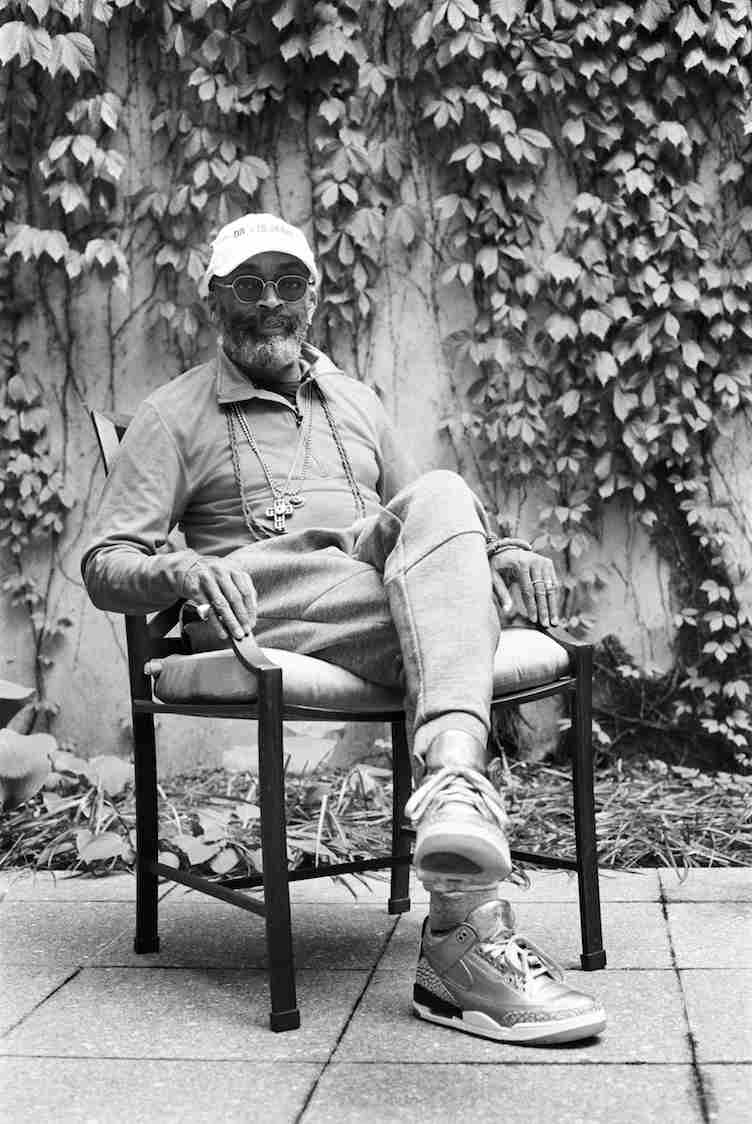
Case in point: mere hours after winning his first Oscar, a pre-corona Spike was on a plane to Bangkok, Thailand to shoot his next project. That project is Da 5 Bloods, a Vietnam War drama — out June 12 on Netflix — that tells the story of four African-American vets — Paul (Delroy Lindo), Otis (Clarke Peters), Eddie (Norm Lewis) and Melvin (Isiah Whitlock, Jr.) — who return to Vietnam along with Paul’s adult son, David (Jonathan Majors), searching for the remains of their fallen squad leader (Chadwick Boseman, whom Lee refers to as “one of the world’s greatest stars”) and the promise of a long-buried treasure.
Pre-production for the film, which Lee directed and co-wrote with frequent collaborator Kevin Willmott, began back in early 2019, while Lee was in the midst of his awards campaign for BlacKkKlansman. As soon as the Oscar parties were over, Lee wasted no time in joining his crew in southeast Asia, literally leaving Los Angeles the next morning. That decision ultimately turned out to be a blessing.
“It was insanity! I didn’t really have time to celebrate. My wife said that she was so happy that I was away from reporters. She said, ‘Thank God you were out of the country! Thank God you cannot say anything about that other film! Thank God you were halfway around the world!’ That was the truth,” he recalls with a mischievous giggle.
He is, of course, referring to his public outrage when Green Book took home the 2019 Best Picture Oscar, which he then referred to as “the ref [making] a bad call.” But at the end of the day, he still had his first Oscar in his hand, and despite his upset, there was still substantial celebrating to be done, rounds to be made, shoulders to rub and champagne to be drunk. And so Lee painted Tinseltown red, as was his right. He had earned it.
“I didn’t even go to bed!” he declares. “I came back, had to pack, took some pictures for the L.A. Times and then had to catch a plane. I had three or four glasses of champagne and then I was out. I was ready to sleep. That Academy Awards campaign is a motherf***er; it was a job in itself. You’ve got to work. I was worn out, but I’m not complaining.”
Lee passed out for most of the more than19 hour flight to Bangkok, and when he landed, the Oscars were firmly a thing of the past. “When I got off the plane, I was done with the Academy. I had to forget about all that stuff because I was there to do the next film, I was there to do Da 5 Bloods. That plane ride was very, very therapeutic. When I landed, mentally and physically, BlacKkKlansman was over, and I was there, in Asia, to do the next film.”
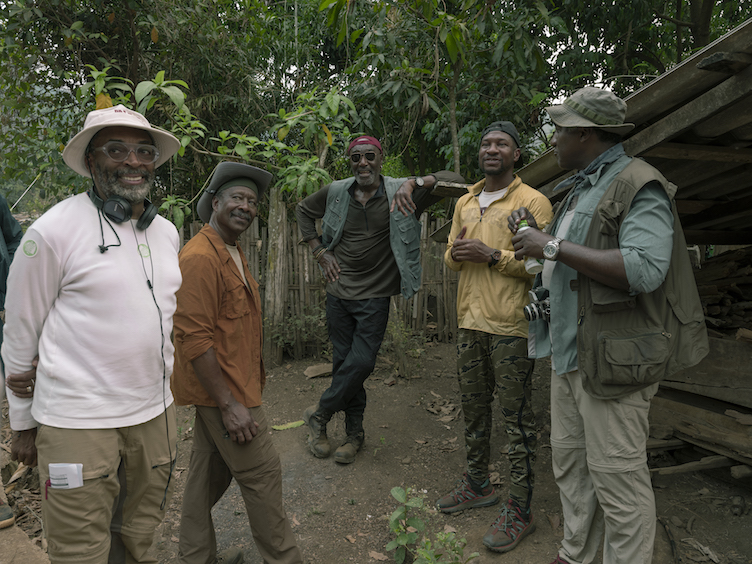
Photo Credit: Netflix
Shooting took Lee from Bangkok to Chiang Mai, Thailand, and finally, to Ho Chi Minh City, Vietnam. It is one of only 48 American films in history to be shot there (a feather in his cap, given that the film was, in part, inspired by Francis Ford Coppola’s Apocalypse Now, which also took place in Vietnam but which could not be filmed there). After the Vietnamese government granted him approval, Lee strove to be extra mindful in his interpretation of the country and its people. Viewers will notice that it is referred to as “the American War,” which is how the Vietnamese still describe it to this day.
“I didn’t know that [going in], but when I heard [the Vietnamese refer to it as such], I said, ‘We have to change the line!’ Also, based on who I am, my values and morals, I was not going to demonize the Vietnamese people. They’re human beings.”
But the story of the war itself isn’t the story he set out to tell. Like many of his films, Da 5 Bloods is a socio-political critique meant to confront America’s history of racism as well as the diminished contributions of its black citizens. It tells the story of young black men who gave their lives to a cause and country that, at the time, did not support them.To make the story relatable, Lee peppers the film with actual footage from a collection of real-life, imperfectly perfect heroes such as Muhammad Ali, who opens the film, and Dr. Martin Luther King, Jr., whose reading of Langston Hughes’ “Let America Be America Again” closes it.
“The film is framed with a beginning and an end, a prologue and an epilogue. I wanted to choose two great Americans, two great humanitarians who spoke out against the Vietnamese War when it was not acceptable,” Lee explains. “Both of these great African-Americans suffered for it. Muhammad Ali was villainized for his statement saying that the Vietnam War was immoral. At the height of his greatness, he got stripped of his heavyweight title and lost two of his prime years, which he never got back. [As for the ending], Dr. King was instrumental in trying to get President Lyndon B. Johnson to pass the Civil Rights Act in 1964. They became friends, but it has been documented that LBJ thought he had been stabbed in the back by Dr. King by coming out against the war. Both of [these men] said, ‘This war is immoral’ when it was not a popular sentiment. It’s easy to say some shit when it’s popular. The hard thing, the courageous thing, is when you speak truth to power, even when everybody is telling you to shut the f**k up.”
Lee himself has never been one to hide his opinions about anything (re: Oscars), and he’ll continue to tell the truth as he sees it. Right now, his truth is this: We. Must. Wake. Up.
He likens the Vietnam War to what’s happening in America today, to how the government has handled the unseen enemy: COVID-19. “When our elected officials lie to us, lives are going to be lost. The government lied to the American public about the Vietnam War, and I think we’re going through something similar here with the pandemic, because the President of the United States has been lying to the American public.”
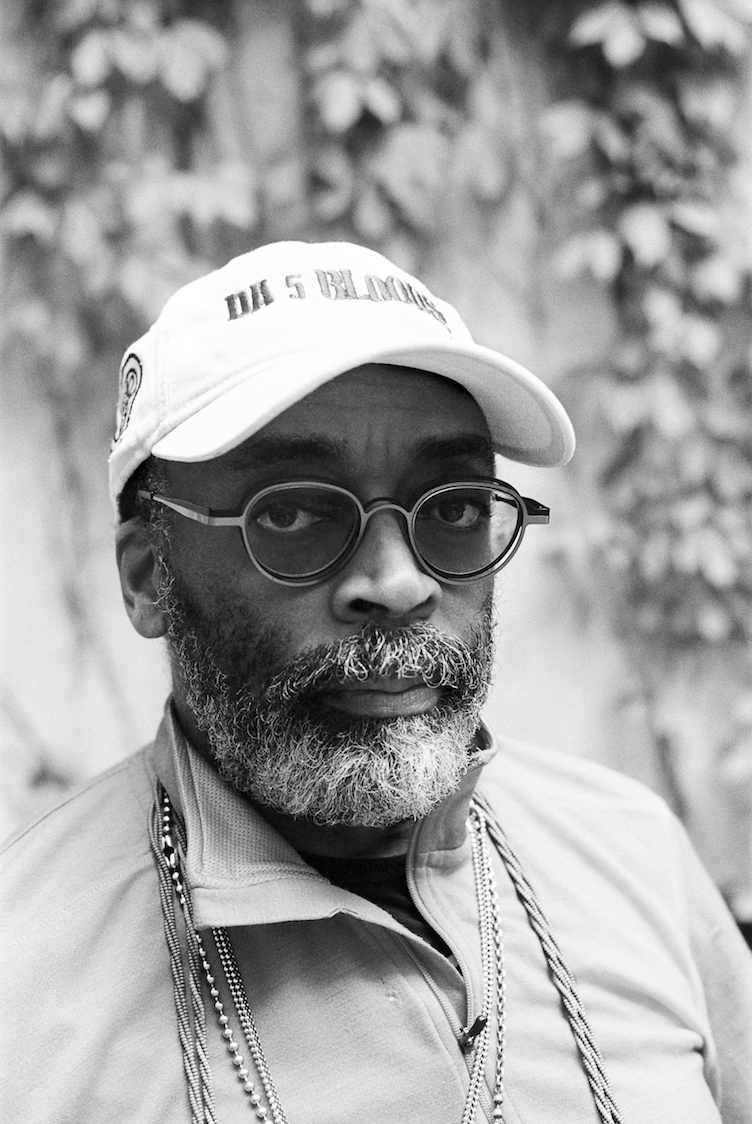
References to President Donald Trump appear throughout Da 5 Bloods, largely as a joke. Paul, the most psychologically damaged of the four friends, wears a “Make America Great Again” cap, for which they tease him mercilessly. The scene cuts to one of Trump’s campaign rallies, focusing on a lone black man holding a “MAGA” sign.
Lee explains, “As my late mother always told me growing up, black people are not one monolithic group. We don’t all think alike, talk alike or look alike. We’re not all the same. So we have these four elder African-American men who were really boys when they were drafted and sent to Vietnam. They haven’t seen each other in ages and everyone goes their own different ways. But remember, conflict brings drama. These four guys could not be dramatic if everyone thought the same. I wanted conflict, so I made the extreme, for this guy [Delroy Lindo] to be a Trump supporter. Scusi, I don’t call him Trump — I call him ‘Agent Orange.’ It’s a double entendre. The film is about Vietnam, and my name for the President of the United States is Agent Orange.”
There was another, more important, reason that he chose to feature Trump at all. “I knew this film was going to come out well before November, but it was another opportunity to comment on it. And as even [Barack] Obama has said himself, this will be the most important presidential election in the history of this country… right now, there are 30 million Americans who don’t know where their next paycheck is coming from. Shit is fucked up.”
“I wear glasses, but I can see,” he continues. “I saw the President of the United States saying, ‘This was going to be over right away, it was going to be a miracle, it was going to be gone.’ But measures were not taken that could have been taken, and we have [more than] 60,000 people dead in America. People are finally realizing that we can’t believe everything the government tells us. If we don’t learn that after this, I don’t know when we’ll learn it.”
If only he had a crystal ball. If he did, he could see the answer, see an end in sight to the quarantine, light at the end of the tunnel, how the world can go back to normal, if there will be a “normal” ever again. Unfortunately, the man is a mere mortal, and he can’t see the future any more than we can. He can just hope, and try to do (and say) the right thing.
He doesn’t have a clue how or when Hollywood can bounce back post-corona. It’s unchartered territory. The virus has not only halted production on pending projects, but many studios have delayed the release of major motion pictures because theaters are closed. Which begs the question: Even if they reopen, will moviegoers feel comfortable going to them? Has COVID-19 changed the landscape of this international pastime forever?
“Usually, I’m able to look into a crystal ball, but I can’t call this,” he laments. “I don’t know when people are going to feel comfortable going to a movie theater, a Broadway play, a sporting event. I’ll be very interested to see what movies will be opening up in theaters. I would not want Da 5 Bloods to open up in a theater right now, that’s for sure.”
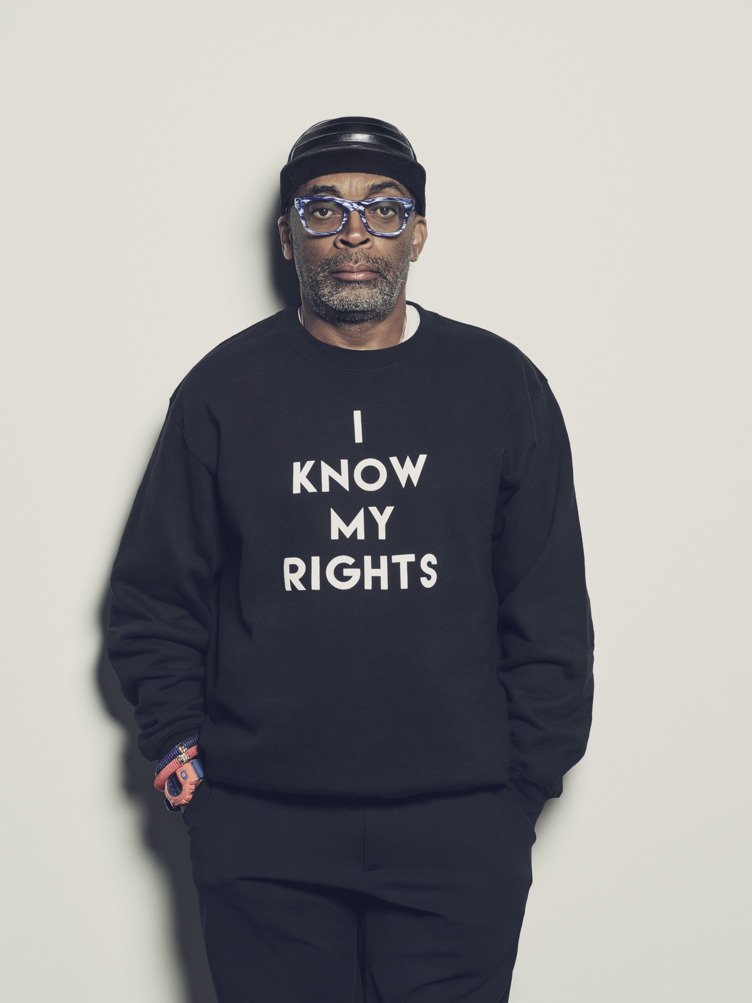
His drama was initially supposed to have its world premiere this summer as an out-of-competition film at the 73rd Annual Cannes Film Festival, at which Lee had been named president of the jury. But that was — as he refers to it — “B.C.: Before Corona [A.C. —After Corona,’ is part of his vernacular too, a play on ‘Before Christ’ and ‘After Christ’].”
Although he didn’t get his moment to shine in the French Riviera sun, there is a silver lining in sight, and one that might lead him back to the Academy Awards… whatever that might look like come 2021. In response to how the pandemic has impacted the film industry, the Academy of Motion Pictures Arts and Sciences made the announcement in May that streaming service movies are eligible for Oscars — this year only — at the upcoming 93rd Academy Awards. Which means, of course, that Da 5 Bloods is eligible for a Best Picture nomination and redemption for Lee. “This is very good news, very good news! I’m very happy!” he enthuses.
It is a sliver of sunshine in an otherwise bleak “new normal,” one new positive among dozens of negatives. Lee is prepared for everyday human interactions to change. In the past, for example, he would have obliged had a fan stopped him on a busy Manhattan street asking for a selfie. Not anymore. “Let me speak for myself: I’m in New York. People stop me in the streets and want to shake my hand, give me a hug. I’m not doing that anymore. I haven’t seen their test results! Conversely, I think people are going to just want to wave at me, because they haven’t seen my test either!” he says, laughing. “I think that has to be the attitude, and it’s an adjustment. It’s very scary.”
At this moment in time, everything is an adjustment. For Lee, who readily acknowledges that he is “blessed,” that modification means staying in one place, as well as losing out on something he really and truly loves — live sports, the Knicks and the Yankees in particular. On that front, though, he seems to be coping fairly well. “I love basketball, but I love my life more,” he maintains. “And to be honest, the Knicks aren’t that good, so I haven’t really missed basketball. I miss the Yankees though. I thought the Yankees had a chance to win our 20th World Championship. [The Knicks] are always going to be my team, but I’m not missing on them. I miss baseball more than basketball.”
This has nothing to do with his snafu with team owner James Dolan, for the record. “That was B.C. — ‘Before Corona.’ That was a different world,” he declares. “I’m looking forward to A.C.”
Cover courtesy of Jason Bell/Netflix


